-
 Bitcoin
Bitcoin $118300
-0.58% -
 Ethereum
Ethereum $3825
0.11% -
 XRP
XRP $3.137
-0.71% -
 Tether USDt
Tether USDt $0.9999
-0.01% -
 BNB
BNB $803.9
-3.37% -
 Solana
Solana $181.5
-1.94% -
 USDC
USDC $0.9999
0.01% -
 Dogecoin
Dogecoin $0.2238
-2.51% -
 TRON
TRON $0.3358
2.12% -
 Cardano
Cardano $0.7844
-2.16% -
 Hyperliquid
Hyperliquid $43.31
-1.48% -
 Sui
Sui $3.807
-4.04% -
 Stellar
Stellar $0.4203
-1.96% -
 Chainlink
Chainlink $17.79
-3.00% -
 Bitcoin Cash
Bitcoin Cash $567.8
-1.34% -
 Hedera
Hedera $0.2614
-4.30% -
 Avalanche
Avalanche $24.19
-4.46% -
 Litecoin
Litecoin $109.2
-0.74% -
 UNUS SED LEO
UNUS SED LEO $8.969
-0.01% -
 Toncoin
Toncoin $3.404
3.97% -
 Ethena USDe
Ethena USDe $1.001
-0.01% -
 Shiba Inu
Shiba Inu $0.00001307
-3.19% -
 Uniswap
Uniswap $10.33
-1.23% -
 Polkadot
Polkadot $3.884
-4.06% -
 Monero
Monero $312.9
-1.87% -
 Dai
Dai $1.000
0.01% -
 Bitget Token
Bitget Token $4.537
-2.24% -
 Pepe
Pepe $0.00001156
-3.40% -
 Cronos
Cronos $0.1437
-0.89% -
 Aave
Aave $282.8
-2.77%
Bitstamp futures trading restricted countries
Bitstamp restricts futures trading in countries like the U.S., Canada, Singapore, and Japan due to regulatory requirements—access is blocked via IP, KYC, and payment checks.
Jul 30, 2025 at 01:15 am
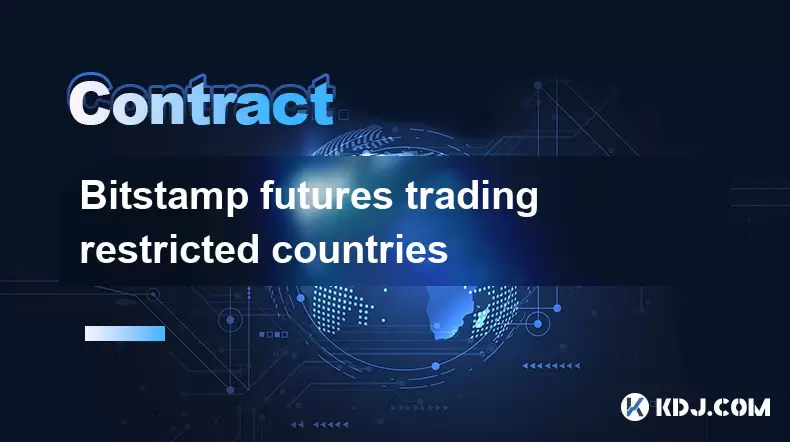
What Countries Are Restricted from Bitstamp Futures Trading?
Bitstamp, a well-established European cryptocurrency exchange, offers futures trading to select users, but not all countries are eligible. Users from certain jurisdictions face restrictions due to regulatory requirements, compliance policies, and licensing limitations. Restricted countries typically include the United States, Canada (specific provinces), Singapore, and Japan. These exclusions are enforced automatically through IP address detection, KYC verification, and user-provided residency information during account setup. If you're located in one of these regions, Bitstamp will prevent you from accessing the futures trading section—even if you complete all other verification steps.
How Does Bitstamp Detect User Location for Futures Access?
Bitstamp uses multiple layers of geolocation technology to determine where a user is based. This is critical because futures contracts fall under derivatives regulation, which varies significantly across countries.
- IP address tracking: Your public IP must not originate from a restricted country. Using a VPN or proxy from a restricted location will trigger an instant block.
- KYC document verification: Submitted IDs (like passports or driver’s licenses) must match the country you claim to reside in. If your ID shows a U.S. address, access will be denied regardless of your current IP.
- Bank account or payment method location: Bitstamp may cross-check the country linked to your deposit methods (e.g., SEPA vs. SWIFT). A mismatch can result in futures trading suspension.
These checks are automated and occur in real time—no manual override is available.Step-by-Step: How to Check If You Can Trade Futures on Bitstamp
If you're unsure whether your country is restricted, follow these steps carefully: - Log into your Bitstamp account and go to the “Trading” section.
- Look for the “Futures” tab—if it’s missing or grayed out, your location is likely restricted.
- Navigate to “Account Settings” > “Personal Information” and confirm your registered country matches your current residence.
- Try placing a test order in the futures market—if you get an error like “Futures trading not available in your region,” you’re restricted.
- Contact Bitstamp support with a ticket titled “Futures Trading Eligibility” and include your user ID for confirmation. Do not attempt to bypass restrictions using false information—this may result in permanent account suspension.
Why Does Bitstamp Restrict Futures in Certain Countries?
The restrictions stem from legal obligations, not arbitrary decisions. Futures contracts are classified as financial derivatives, and many countries require exchanges to hold specific licenses to offer them. For example: - The U.S. Commodity Futures Trading Commission (CFTC) mandates strict licensing for crypto derivatives—Bitstamp does not hold this license.
- Japan’s Financial Services Agency (FSA) requires local incorporation and capital reserves that Bitstamp hasn’t met for futures.
- Singapore’s Monetary Authority (MAS) imposes leverage limits and investor suitability tests that Bitstamp avoids by excluding Singaporean users.
These laws are non-negotiable. Bitstamp prioritizes compliance over expanding into high-risk jurisdictions without proper authorization.What Happens If You Try to Trade Futures from a Restricted Country?
Attempting to trade futures from a restricted location triggers immediate consequences: - Your futures positions will be liquidated automatically if Bitstamp detects a location mismatch mid-trade.
- You’ll receive an email warning about policy violation, and your futures access will be permanently disabled.
- If you used a false address or fake documents during KYC, your entire account—including spot trading—may be frozen pending review.
- Repeated attempts can lead to blacklisting across Bitstamp’s ecosystem, including staking and referral programs.
Bitstamp’s compliance system logs every access attempt, so even temporary location changes (like travel) must be reported to support to avoid penalties.Frequently Asked Questions
Can I use a non-restricted country’s address to bypass Bitstamp futures restrictions?
No. Bitstamp cross-references your IP, KYC documents, and payment methods. Providing a false address violates their Terms of Service and can result in permanent account suspension and fund freezing.Does Bitstamp allow futures trading in the UK or EU?
Yes, most EU countries and the UK are permitted for futures trading, provided you complete full KYC and reside in a non-restricted jurisdiction. Check your account dashboard directly—if the futures tab is visible, you’re eligible.What if I move from a restricted country to an allowed one?
You must update your KYC documents with proof of new residency (e.g., utility bill or lease agreement). Submit a support ticket with “Country Change Request” in the subject. Futures access will only be restored after manual review—this can take 3–5 business days.Are there any exceptions for institutional clients in restricted countries?
No. Bitstamp applies the same restrictions to individual and institutional accounts. Even corporate entities based in the U.S. or Singapore cannot access futures trading unless they operate under a licensed Bitstamp subsidiary in that region—which currently does not exist.
Disclaimer:info@kdj.com
The information provided is not trading advice. kdj.com does not assume any responsibility for any investments made based on the information provided in this article. Cryptocurrencies are highly volatile and it is highly recommended that you invest with caution after thorough research!
If you believe that the content used on this website infringes your copyright, please contact us immediately (info@kdj.com) and we will delete it promptly.
- IPO, Bitcoin, and Treasury: A New Era of Crypto Investment?
- 2025-07-30 14:30:12
- Bitcoin, Binance, and Whales: Decoding the Latest Market Moves
- 2025-07-30 14:50:12
- Sinkhole Rescue: Migrant Workers' Heroism Sparks Fundraising in Tanjong Katong
- 2025-07-30 14:50:12
- Strategy, Bitcoin, and IPOs: A New York Perspective on 2025's Biggest Moves
- 2025-07-30 14:55:11
- TROLL Memecoin Mania: From Online Buzz to Market Reality
- 2025-07-30 14:55:11
- Coinbase, Circle, and the Power of Partnership: A New Era for Crypto?
- 2025-07-30 12:30:12
Related knowledge
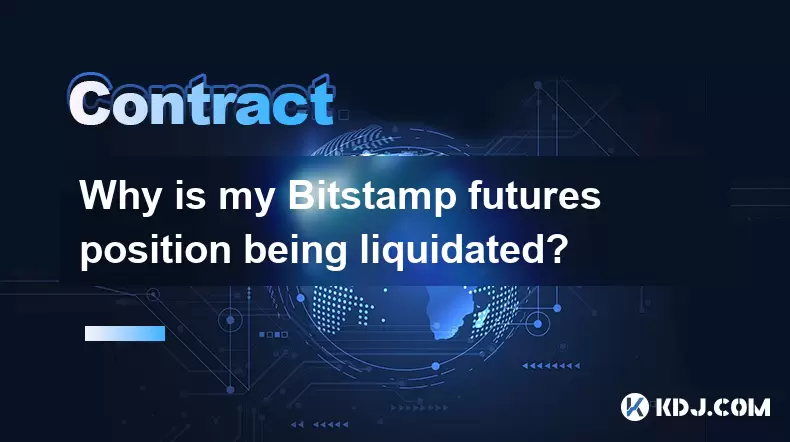
Why is my Bitstamp futures position being liquidated?
Jul 23,2025 at 11:08am
Understanding Futures Liquidation on BitstampFutures trading on Bitstamp involves borrowing funds to open leveraged positions, which amplifies both po...
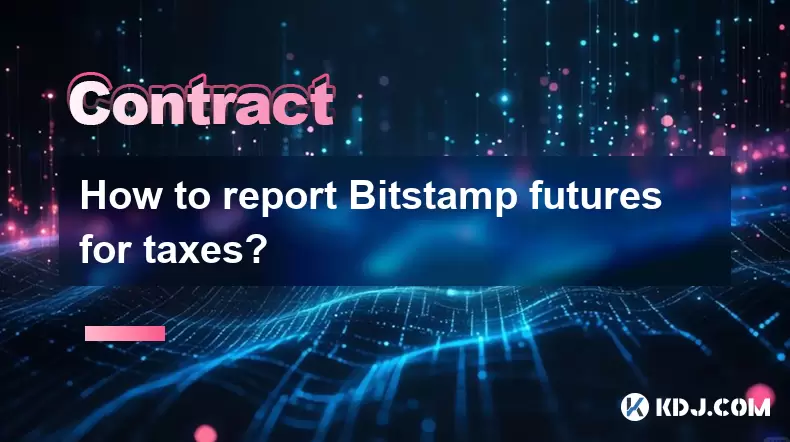
How to report Bitstamp futures for taxes?
Jul 30,2025 at 08:35am
Understanding Bitstamp Futures and Taxable EventsWhen trading Bitstamp futures, it’s essential to recognize that these financial instruments are treat...
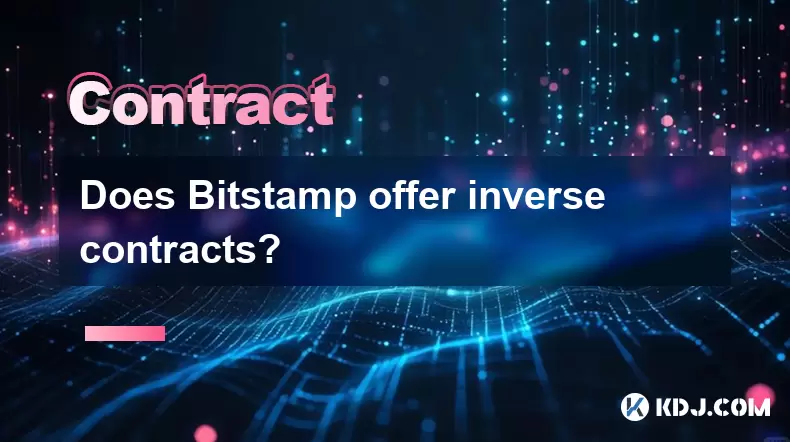
Does Bitstamp offer inverse contracts?
Jul 23,2025 at 01:28pm
Understanding Inverse Contracts in Cryptocurrency TradingIn the realm of cryptocurrency derivatives, inverse contracts are a specific type of futures ...
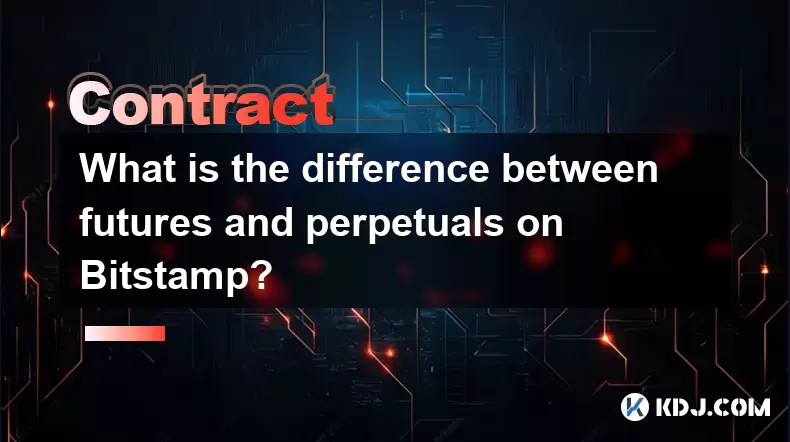
What is the difference between futures and perpetuals on Bitstamp?
Jul 27,2025 at 05:08am
Understanding Futures Contracts on BitstampFutures contracts on Bitstamp are financial derivatives that allow traders to speculate on the future price...

How to find your Bitstamp futures trade history?
Jul 23,2025 at 08:07am
Understanding Bitstamp and Futures Trading AvailabilityAs of the current state of Bitstamp’s service offerings, it is critical to clarify that Bitstam...
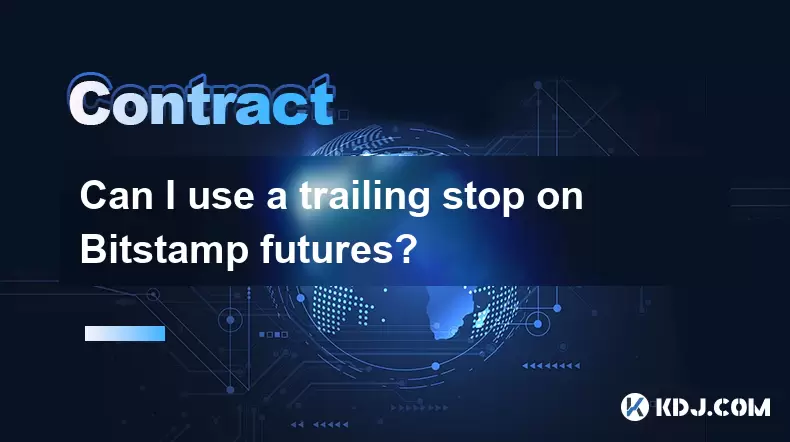
Can I use a trailing stop on Bitstamp futures?
Jul 23,2025 at 01:42pm
Understanding Trailing Stops in Cryptocurrency TradingA trailing stop is a dynamic type of stop-loss order that adjusts automatically as the price of ...

Why is my Bitstamp futures position being liquidated?
Jul 23,2025 at 11:08am
Understanding Futures Liquidation on BitstampFutures trading on Bitstamp involves borrowing funds to open leveraged positions, which amplifies both po...

How to report Bitstamp futures for taxes?
Jul 30,2025 at 08:35am
Understanding Bitstamp Futures and Taxable EventsWhen trading Bitstamp futures, it’s essential to recognize that these financial instruments are treat...

Does Bitstamp offer inverse contracts?
Jul 23,2025 at 01:28pm
Understanding Inverse Contracts in Cryptocurrency TradingIn the realm of cryptocurrency derivatives, inverse contracts are a specific type of futures ...

What is the difference between futures and perpetuals on Bitstamp?
Jul 27,2025 at 05:08am
Understanding Futures Contracts on BitstampFutures contracts on Bitstamp are financial derivatives that allow traders to speculate on the future price...

How to find your Bitstamp futures trade history?
Jul 23,2025 at 08:07am
Understanding Bitstamp and Futures Trading AvailabilityAs of the current state of Bitstamp’s service offerings, it is critical to clarify that Bitstam...

Can I use a trailing stop on Bitstamp futures?
Jul 23,2025 at 01:42pm
Understanding Trailing Stops in Cryptocurrency TradingA trailing stop is a dynamic type of stop-loss order that adjusts automatically as the price of ...
See all articles

























































































